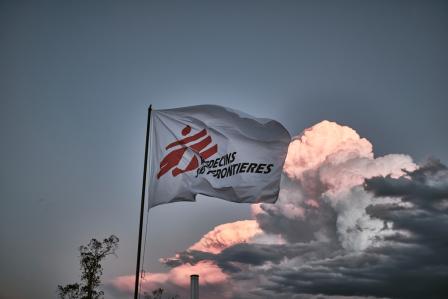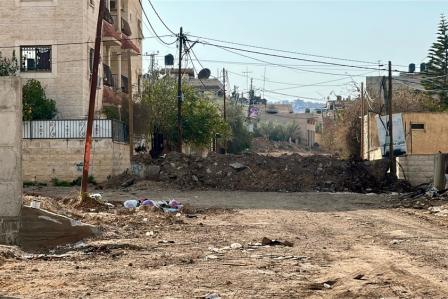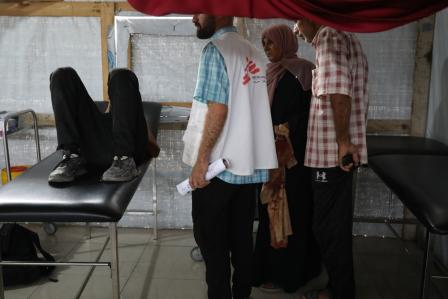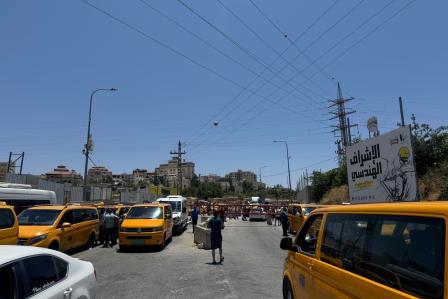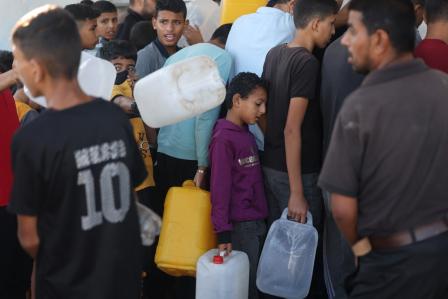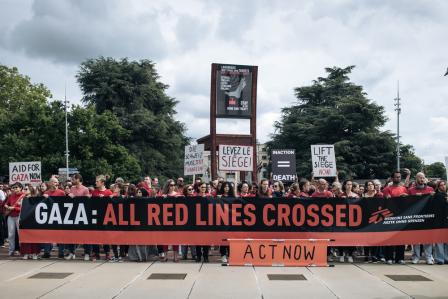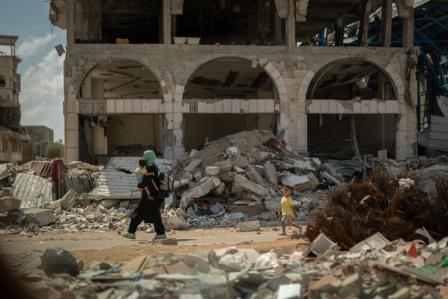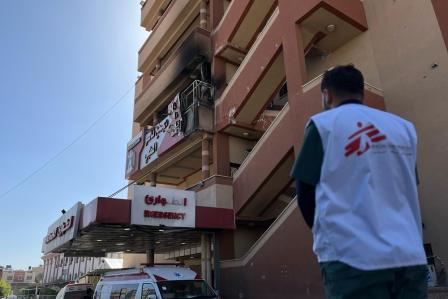Gaza: One month into deadly Israeli-imposed blockade, critical medicines start to run out
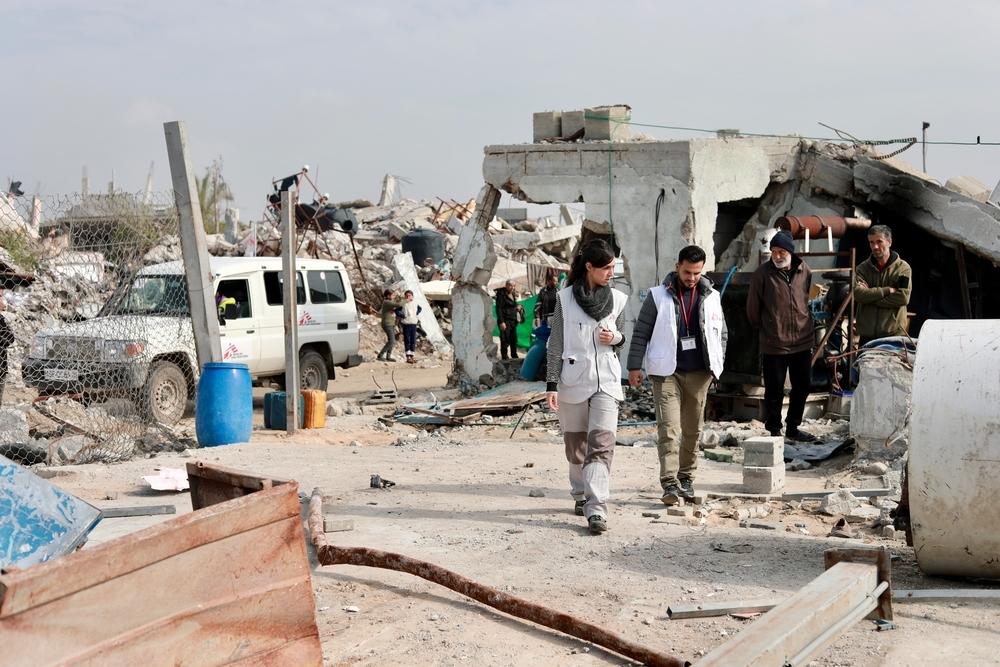
Doctors Without Borders water and sanitation engineers assessing a borehole in Beit Lahia city, north of Gaza Strip. Palestinian Territories, March 2025. © Nour Alsaqqa/MSF
A month-long siege imposed by Israeli authorities in Gaza, Palestine, means some critical medications are now short in supply and are running out, leaving Palestinians at risk of losing vital healthcare, warns Doctors Without Borders/Médecins Sans Frontières (MSF). As Israeli forces continue to bomb the Gaza Strip, depriving people of basic needs, including food, water, and medicines may lead to a high number of health complications and deaths. Doctors Without Borders calls on Israeli authorities to immediately cease the collective punishment of Palestinians, end their inhumane siege of Gaza, and to uphold their responsibilities as an occupying power to facilitate humanitarian aid at scale.
For over a month, no aid or commercial trucks have entered Gaza, marking the longest period since the start of the war without any trucks entering the Strip and on 2 March, Israeli authorities imposed a complete siege of Gaza. On 9 March they cut the electricity, needed to power water desalination plants. This total blockade of aid and electricity has deprived people of most basic services, amounting to collective punishment.
The Israeli authorities' have condemned the people of Gaza to unbearable suffering with their deadly siege. This deliberate infliction of harm on people is like a slow death; it must end immediately.Myriam Laaroussi, Emergency Coordinator
The siege has forced Doctors Without Borders teams have already to start rationing medications such as pain killers, providing less effective treatment or turning patients away. Teams are also running out of surgical supplies such as anaesthetics, paediatric antibiotics and medicines for chronic conditions like epilepsy, hypertension and diabetes. As a result of rationing, our teams in some primary health care clinics conduct wound dressings for injured people without providing them with any pain relief.
In addition, Doctors Without Borders teams are no longer able to donate blood bag donations to Nasser hospital due to a lack of stock, while the influxes of patients war-wounded by relentless Israeli force’s relentless continue.
The lack of soap and clean water for people means in primary health care clinics across the Strip, our teams are seeing an increase of people with skin conditions. In February, Doctors Without Borders teams treated 565 cases of skin conditions at the Al Hekker clinic in Deir Al Balah and 1,198 cases at the Al Attar clinic in Khan Younis. Just in two weeks in March, the number of cases at Al Hekker had already reached 437—nearly 80 percent of February's total—while at Al Attar, 711 cases had been treated, almost 60 percent oof the number seen in February.
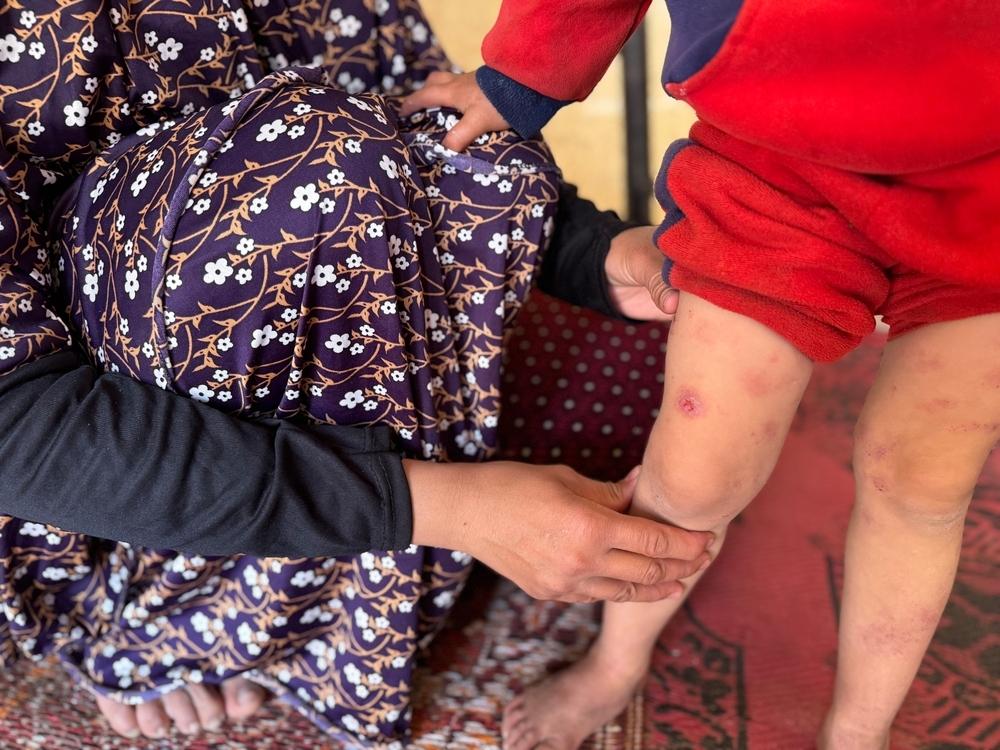
Palestinian mother shows the skin condition of her little child due to the lack of hygiene and clean water. Palestinian Territories, March 2025. © Nour Alsaqqa/MSF
The blockade has left Doctors Without Borders teams are unable to provide medication to treat skin conditions, just small amounts of lotion to alleviate the pain. Skin conditions like scabies require treatment for the entire family to prevent spread and reinfection, but without medications, and clean water this is impossible.
For people with non-communicable diseases, such as hypertension and diabetes, the consequences of the lack of treatment may lead to severe complications, such as permanent disabilities and in some cases even death. Since the blockade, we have only been able to give patients medication to cover their needs for seven to 10 days.
“I don’t have any blood pressure medication left. My son searched for two days and couldn’t find any,” explains Sobheya Al-Beshiti, a patient of the Doctors Without Borders clinic in Attar, Khan Younis.
“What can I do? Stay without treatment? If I don’t take my blood thinner, my nose starts bleeding, and I start coughing blood.”
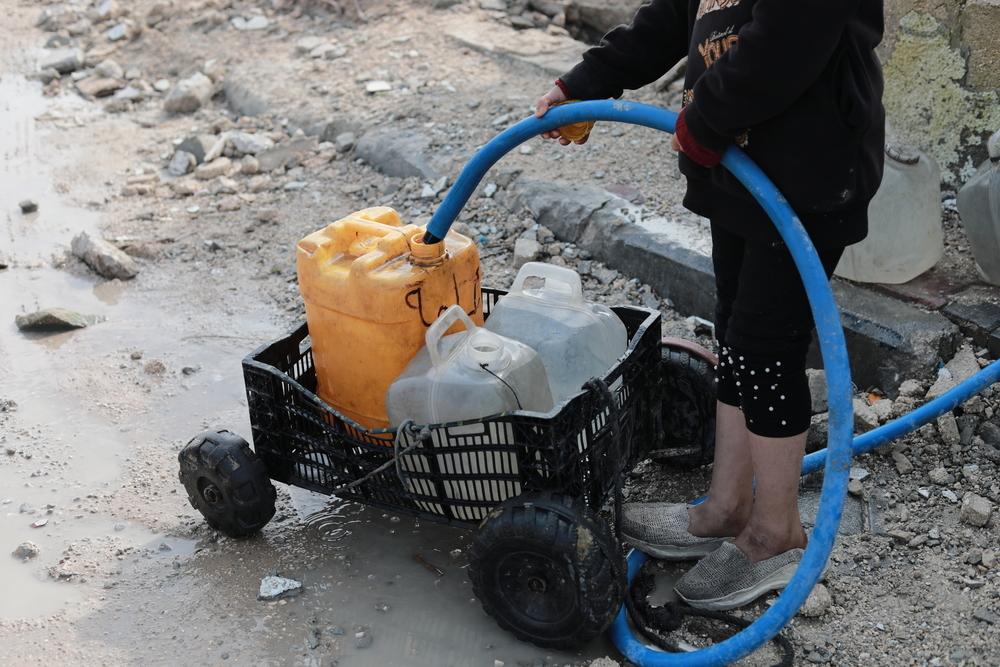
Palestinian child is collecting water in Beit Lahia city, north of Gaza Strip. Palestinian Territories, March 2025. © Nour Alsaqqa/MSF
During the Muslim holy month of Ramadan and Eid, patients in Doctors Without Borders clinics are reporting weight loss and lack of access to proper food.
“Right now, my blood levels are low, and my weight is also low. There aren’t enough food supplies to help me gain weight or increase my blood levels,” explains pregnant mother in a Doctors Without Borders clinic in Mawasi, Khan Younis.
“The rising prices are a huge problem in the city: people simply cannot afford to buy necessities because of how expensive everything is.”
Will you support our emergency response work?
Help us provide lifesaving medical care during emergencies by making a donation today.
